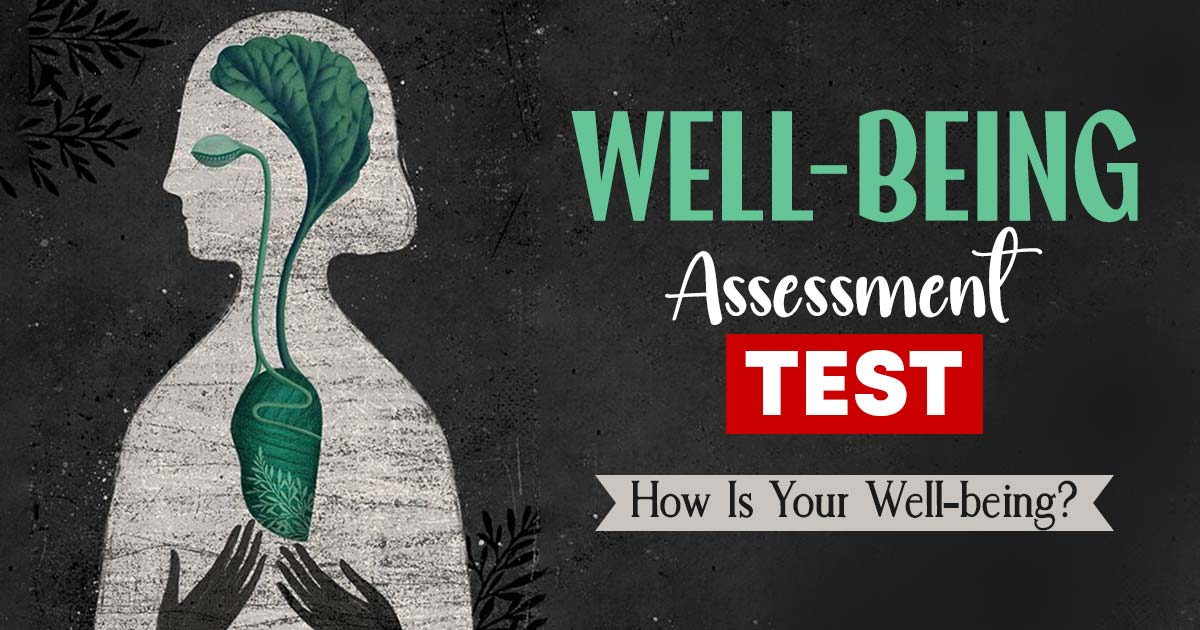Do you doubt your abilities? Or think you are quite incompetent than others? Do you feel undeserving of your success at work? Take our Imposter Syndrome test to find out if you have traits of Imposter Syndrome.
What Is Imposter Syndrome?
Imposter Syndrome is a mental health condition where individuals believe they are unworthy of their accomplishments and high regard. It can cause feelings of restlessness and anxiety, and lead to negative self-talk.
Even with clear evidence of success, those with Imposter Syndrome attribute it to luck or being in the right place at the right time, causing them to set even higher standards for themselves.
Some of the signs of Imposter Syndrome are-
- Inability to assess one’s skills and competence
- Self-doubting and setting a very challenging task for ownself
- Being anxious and disappointed when unable to meet others’ expectation
Read More About Imposter Syndrome Here
Instructions For Taking Imposter Syndrome Test Online:
A list of questions is mentioned in this IMPOSTER SYNDROME SELF-TEST which is related to life experiences that are common among people who have traits of Imposter Syndrome. Please read each question carefully, and indicate how often you have experienced the same or similar signs.
Please note: This is not a diagnostic tool and is only meant for self-assessment.
Assessment Summary
0 of 20 Questions completed
Questions:
Information
You have already completed the assessment before. Hence you can not start it again.
Assessment is loading…
You must sign in or sign up to start the assessment.
You must first complete the following:
Results
Results
Your time:
Time has elapsed
You have reached 0 of 0 point(s), (0)
Earned Point(s): 0 of 0, (0)
0 Essay(s) Pending (Possible Point(s): 0)
Categories
- Mental Health Assessment 0%
-
No Indication Of Imposter Syndrome
Your score indicates that you do not have any significant traits of Imposter Syndrome. You do not keep any such negative thoughts about your success and accomplishment. You do not also consider yourself a fraud and work spontaneously without keeping negative fear of failure. You also seem to have a good sense of self-worth and keep confidence that you deserve the praise that you get. Your response also indicates that you do not undermine your day-to-day performances and feel good about your productivity at work.
However, it should be noted that this is just a screening tool and not meant for proper medical diagnosis. If you think the results do not accurately represent your thoughts and feelings, then we would encourage you to consult a mental health professional for accurate diagnosis and treatment.
Want to learn more?
Do you want to learn more about Imposter Syndrome? Identifying imposter feelings and bringing them out into the light of day can accomplish several goals. Opening up to peers and sharing imposter feelings can help an individual feel less overwhelmed. If you want to know how to seek help for yourself or help someone whom you suspect might have traits of Imposter Syndrome, talk to our psychologists to better understand what you can do to recover from it.
You can use our Mood Tracker to stay mindful of your mood every day, identify your innermost thoughts & emotions on a daily basis. It will aid you in doing all the things you love, while limiting activities that might dampen your mood.
-
Mild Indication Of Imposter Syndrome
Your score indicates that you have mild significant traits of Imposter Syndrome. You might keep sometimes a few negative thoughts about your success and accomplishment. You might also doubt work spontaneously in a few cases without keeping negative fear of failure. But besides this, you also seem to have a sense of self-worth and keep confidence that you might deserve the praise that you get. Your response also indicates that you might undermine your day-to-day performances in a few cases and might doubt your productivity at work.
However, it should be noted that this is just a screening tool and not meant for proper medical diagnosis. If you think the results do not accurately represent your thoughts and feelings, then we would encourage you to consult a mental health professional for accurate diagnosis and treatment.
Want to learn more?
Do you want to learn more about Imposter Syndrome? Identifying imposter feelings and bringing them out into the light of day can accomplish several goals. Opening up to peers and sharing imposter feelings can help an individual feel less overwhelmed. If you want to know how to seek help for yourself or help someone whom you suspect might have traits of Imposter Syndrome, talk to our psychologists to better understand what you can do to recover from it.
You can use our Mood Tracker to stay mindful of your mood every day, identify your innermost thoughts & emotions on a daily basis. It will aid you in doing all the things you love, while limiting activities that might dampen your mood.
-
Moderate Indication Of Imposter Syndrome
Your score indicates that you have moderate significant traits of Imposter Syndrome. You might keep many times negative thoughts about your success and accomplishment. You might also doubt work spontaneously in many cases without keeping negative fear of failure. Your response also indicates that you might tend to undermine your day-to-day performances despite adequate evidence suggesting otherwise. You might also tend to overthink your minor flaws at work and might become uncomfortable with performance evaluation.
However, it should be noted that this is just a screening tool and not meant for proper medical diagnosis. If you think the results do not accurately represent your thoughts and feelings, then we would encourage you to consult a mental health professional for accurate diagnosis and treatment.
Want to learn more?
Do you want to learn more about Imposter Syndrome? Identifying imposter feelings and bringing them out into the light of day can accomplish several goals. Opening up to peers and sharing imposter feelings can help an individual feel less overwhelmed. If you want to know how to seek help for yourself or help someone whom you suspect might have traits of Imposter Syndrome, talk to our psychologists to better understand what you can do to recover from it.
You can use our Mood Tracker to stay mindful of your mood every day, identify your innermost thoughts & emotions on a daily basis. It will aid you in doing all the things you love, while limiting activities that might dampen your mood.
-
High Indication Of Imposter Syndrome
Your score indicates that you have highly significant traits of Imposter Syndrome. Your response seems that you are not happy with the success that you get from work and most of the time keep negative fear of failure. You also seem to undermine most of the time your day-to-day performances despite adequate evidence suggesting otherwise. You seem to overthink repetitively about your minor flaws at work and get scared and uncomfortable with performance evaluations. This also seems to bring a negative impact on your self-esteem, self-confidence, and self-worth.
However, it should be noted that this is just a screening tool and not meant for proper medical diagnosis. If you think the results do not accurately represent your thoughts and feelings, then we would encourage you to consult a mental health professional for accurate diagnosis and treatment.
Want to learn more?
Do you want to learn more about Imposter Syndrome? Identifying imposter feelings and bringing them out into the light of day can accomplish several goals. Opening up to peers and sharing imposter feelings can help an individual feel less overwhelmed. If you want to know how to seek help for yourself or help someone whom you suspect might have traits of Imposter Syndrome, talk to our psychologists to better understand what you can do to recover from it.
You can use our Mood Tracker to stay mindful of your mood every day, identify your innermost thoughts & emotions on a daily basis. It will aid you in doing all the things you love, while limiting activities that might dampen your mood.
- 1
- 2
- 3
- 4
- 5
- 6
- 7
- 8
- 9
- 10
- 11
- 12
- 13
- 14
- 15
- 16
- 17
- 18
- 19
- 20
- Current
- Review
- Answered
- Correct
- Incorrect
-
Question 1 of 20
1. Question
-
Question 2 of 20
2. Question
-
Question 3 of 20
3. Question
-
Question 4 of 20
4. Question
-
Question 5 of 20
5. Question
-
Question 6 of 20
6. Question
-
Question 7 of 20
7. Question
-
Question 8 of 20
8. Question
-
Question 9 of 20
9. Question
-
Question 10 of 20
10. Question
-
Question 11 of 20
11. Question
-
Question 12 of 20
12. Question
-
Question 13 of 20
13. Question
-
Question 14 of 20
14. Question
-
Question 15 of 20
15. Question
-
Question 16 of 20
16. Question
-
Question 17 of 20
17. Question
-
Question 18 of 20
18. Question
-
Question 19 of 20
19. Question
-
Question 20 of 20
20. Question









